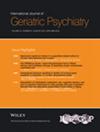Adverse effects of methylphenidate for apathy in patients with Alzheimer's disease (ADMET2 trial)
Abstract
Objectives
To examine clinically important adverse events (AEs) associated with methylphenidate (MPH) treatment of apathy in Alzheimer's Disease (AD) versus placebo, including weight loss, vital signs, falls, and insomnia.
Methods
The Apathy in Dementia Methylphenidate Trial 2 (ADMET2) trial was a multicenter randomized, placebo-controlled trial of MPH to treat apathy in individuals with apathy and AD. Participants in ADMET2 had vital signs and weight measured at monthly visits through 6 months. AEs, including insomnia, falls, and cardiovascular events, were reported at every visit by participants and families using a symptom checklist.
Results
The study included 98 participants in the MPH group and 101 in the placebo group. Participants in the MPH group experienced greater weight loss on average than the placebo through the 6-month follow-up, with a difference in change between MPH and placebo of 2.8 lb (95% confidence interval, CI: 0.7, 4.9 lb). No treatment group differences in change during the trial were found in systolic and diastolic blood pressure. More participants in the MPH group reported falls during the follow-up, 10 versus 6 in MPH and placebo groups, respectively. No differences in post-baseline insomnia were observed between the treatment groups. No participants reported instances of myocardial infarction, congestive heart failure, arrhythmia, stroke, or cardiomyopathy throughout the study period.
Conclusions
MPH use in AD patients for treating apathy is relatively safe, particularly notable given the many medical comorbidities in this population. There was a statistically significant but modest weight loss associated with MPH use, and clinicians are thus advised to monitor weight during MPH treatment.

 求助内容:
求助内容: 应助结果提醒方式:
应助结果提醒方式:


